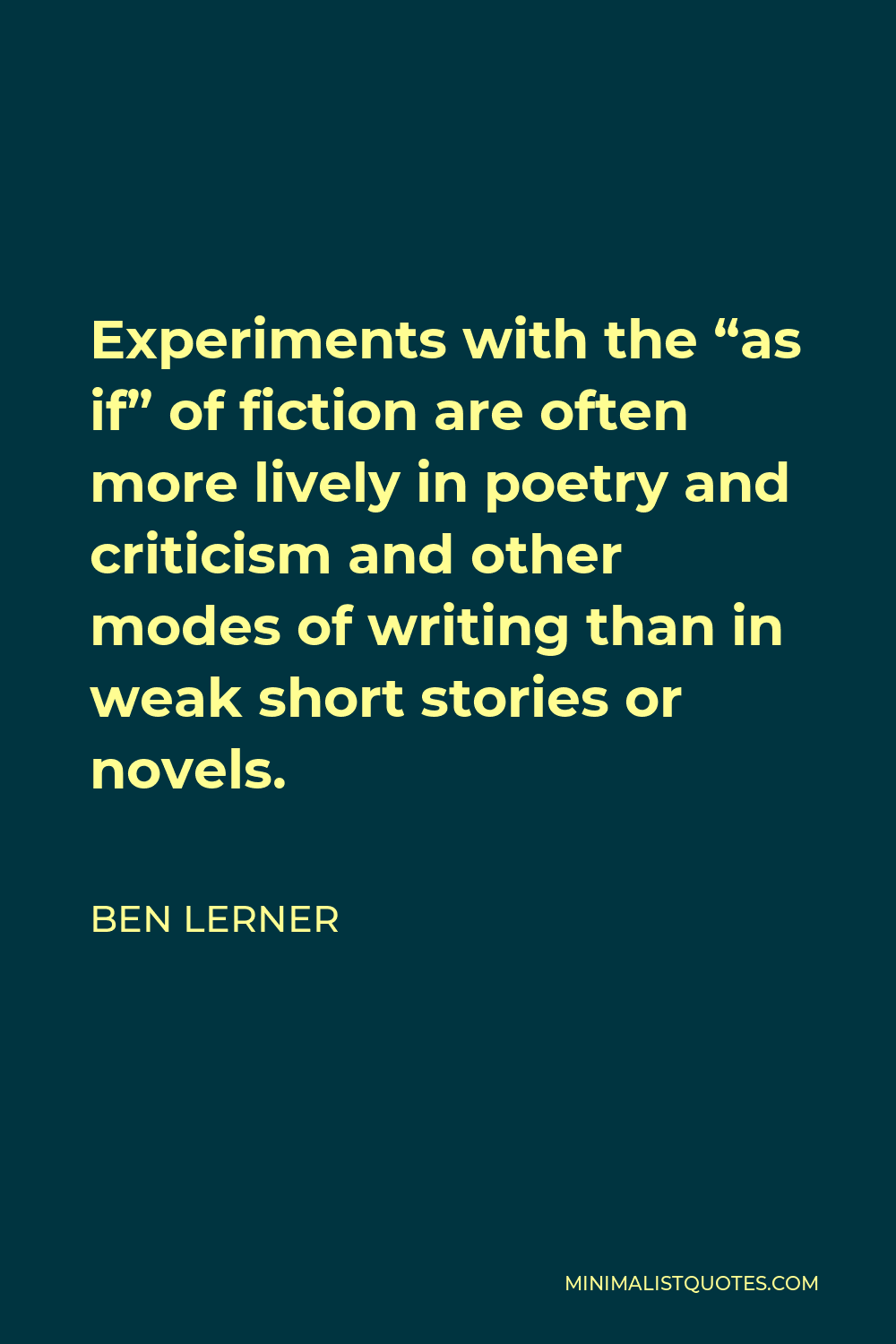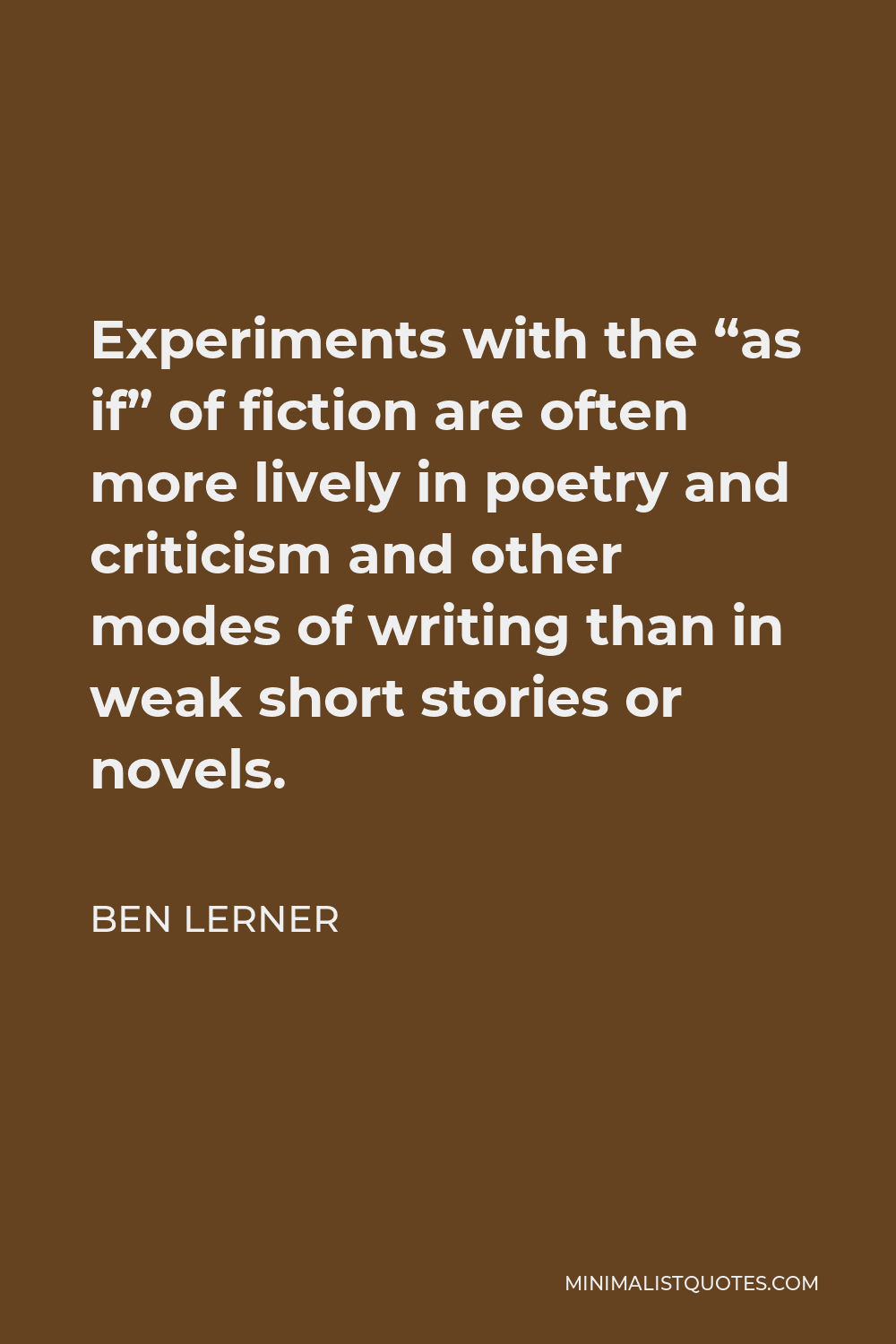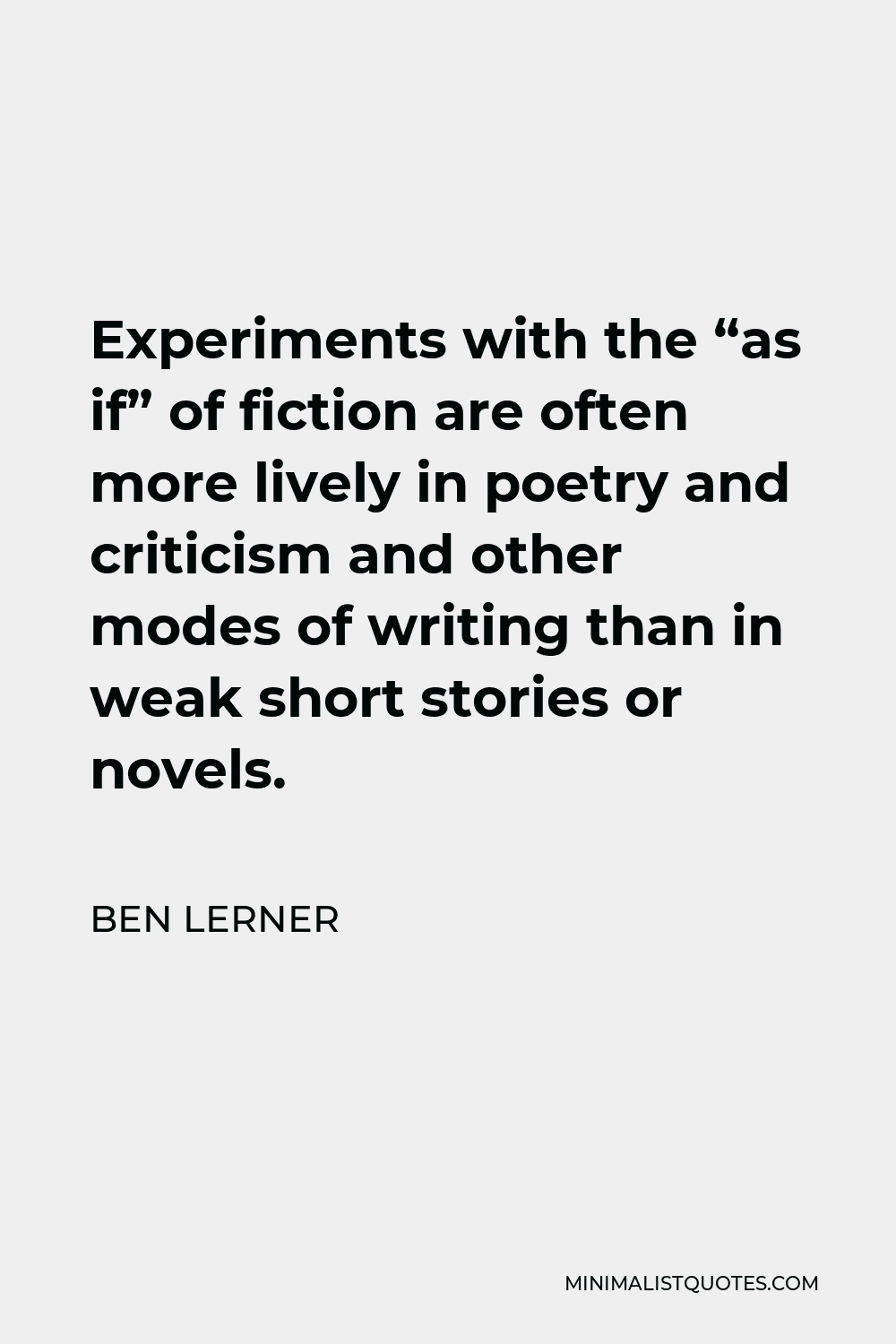Maybe that’s the way I’m private – I respect the privacy of “my” characters? Anyway, we’re getting close to the whole “relatability” and “likability” thing.
BEN LERNERExperiments with the “as if” of fiction are often more lively in poetry and criticism and other modes of writing than in weak short stories or novels.
More Ben Lerner Quotes
-





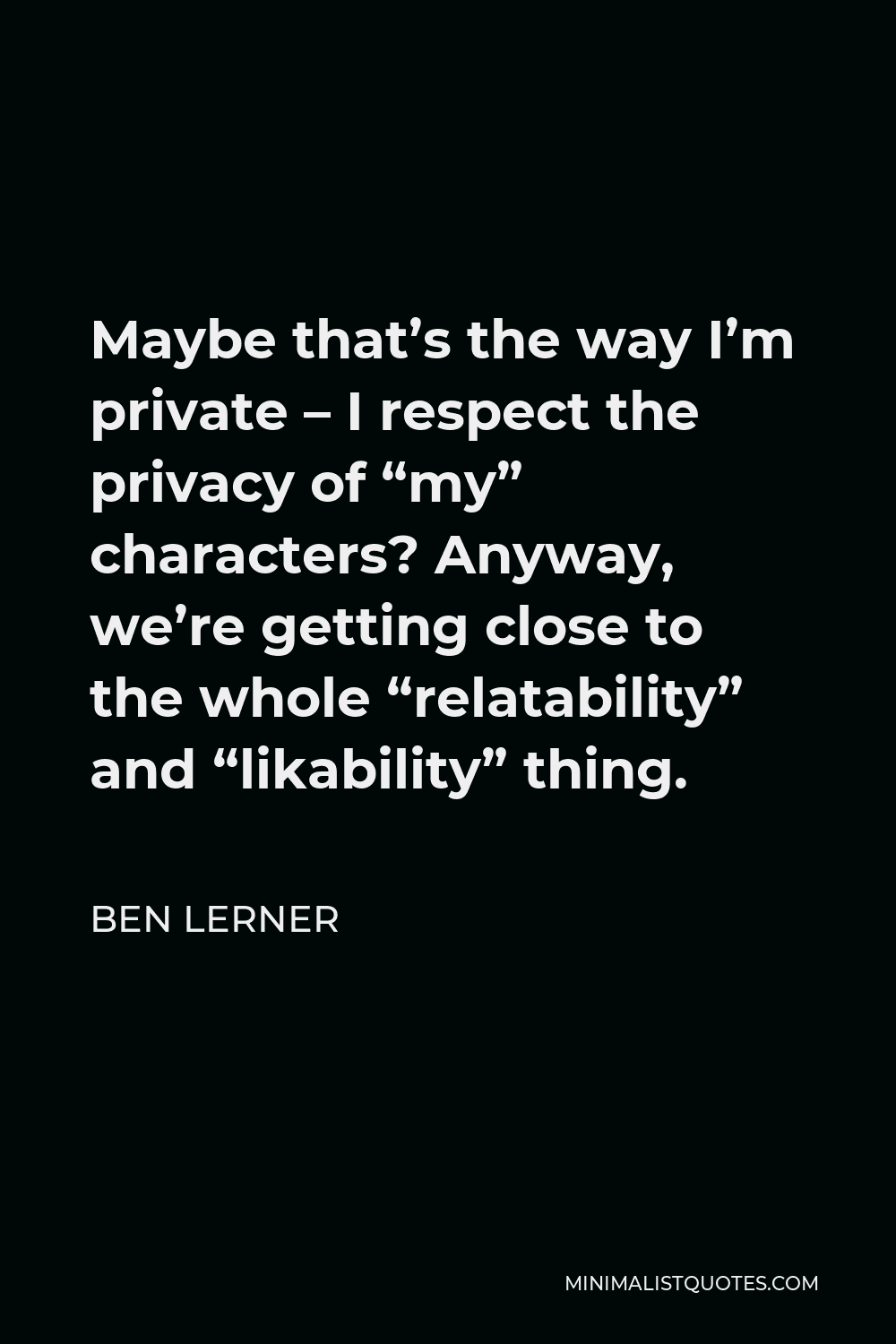
-





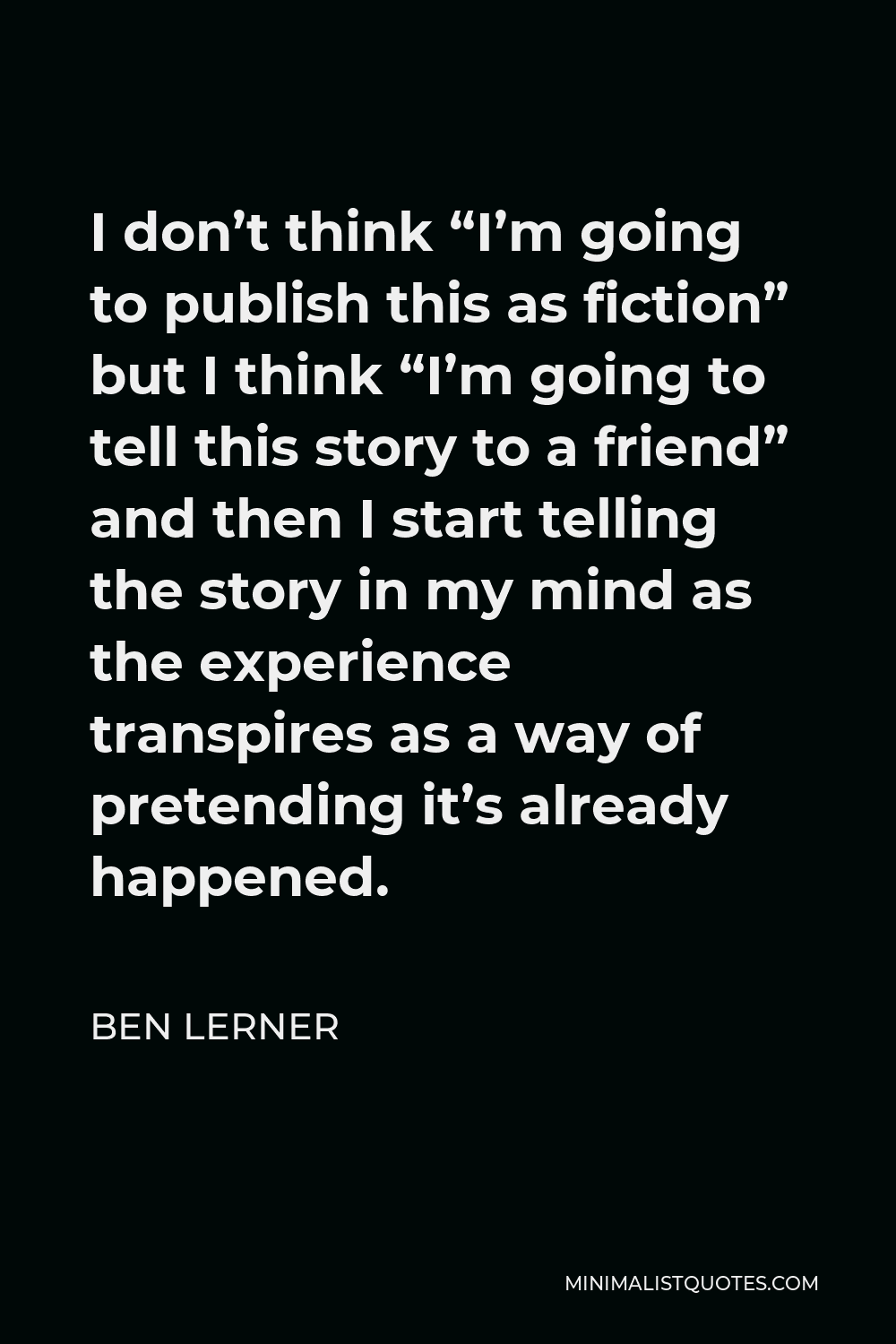
I don’t think “I’m going to publish this as fiction” but I think “I’m going to tell this story to a friend” and then I start telling the story in my mind as the experience transpires as a way of pretending it’s already happened.
BEN LERNER -






I was a violent, bipolar, compulsive liar. I was a real American.
BEN LERNER -





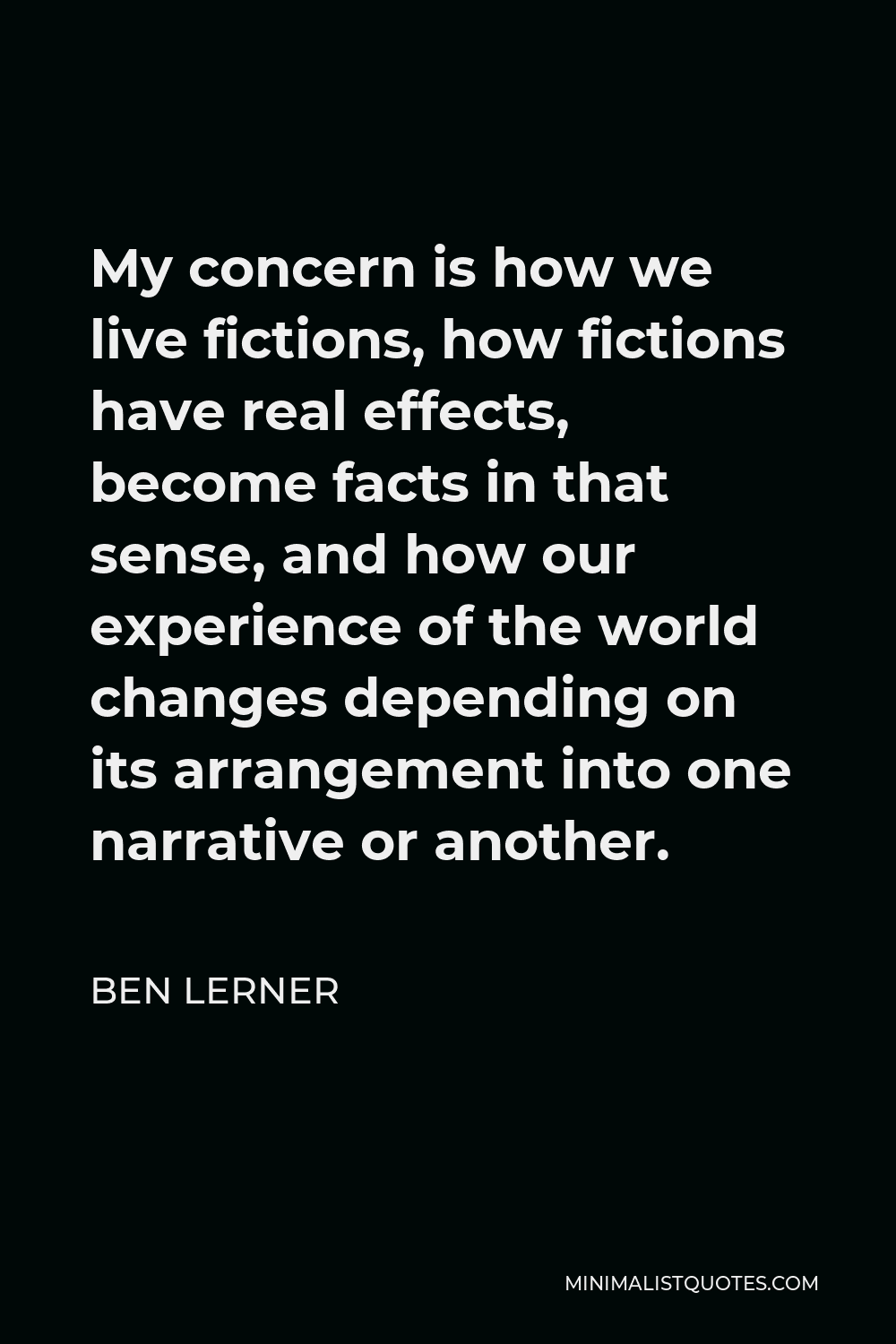
My concern is how we live fictions, how fictions have real effects, become facts in that sense, and how our experience of the world changes depending on its arrangement into one narrative or another.
BEN LERNER -





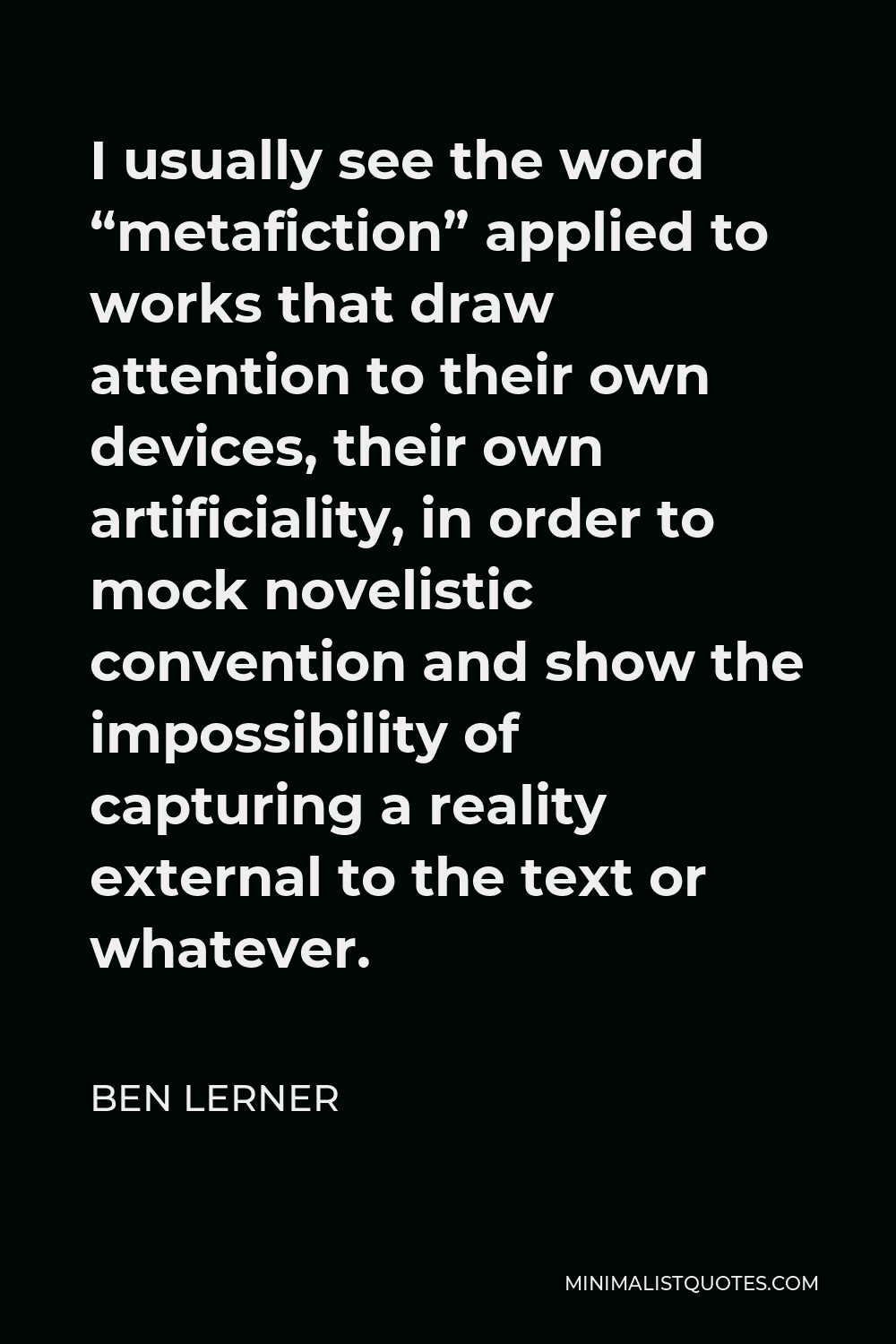
I usually see the word “metafiction” applied to works that draw attention to their own devices, their own artificiality, in order to mock novelistic convention and show the impossibility of capturing a reality external to the text or whatever.
BEN LERNER -







I have no interest in artists who are purely affirmative, who’ve made a commercialized fetish of the culture’s stupidity.
BEN LERNER -





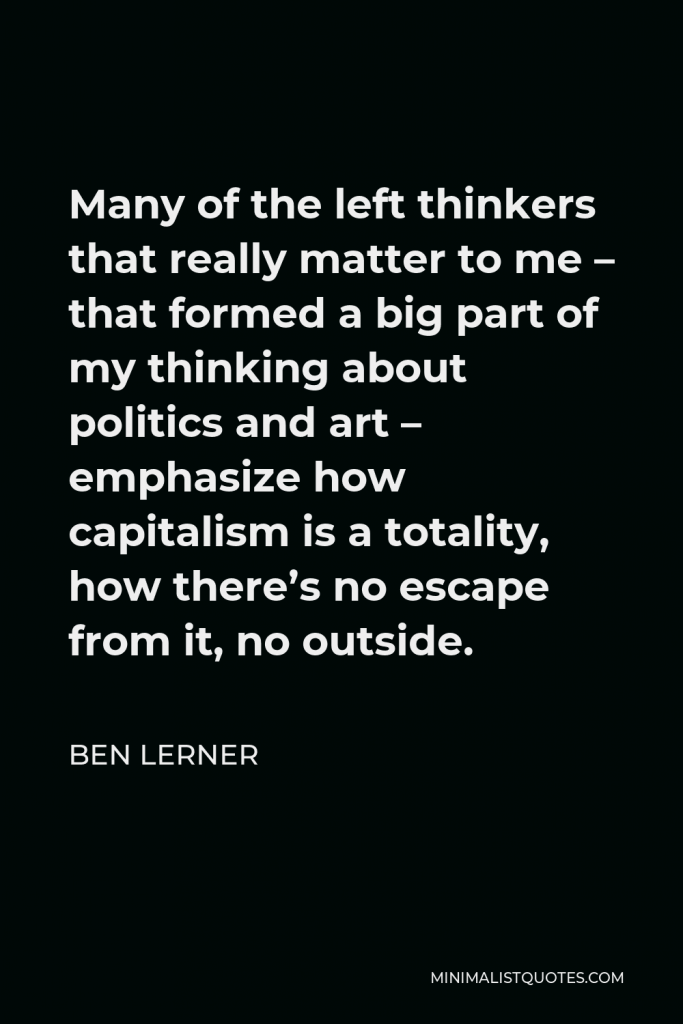

Many of the left thinkers that really matter to me – that formed a big part of my thinking about politics and art – emphasize how capitalism is a totality, how there’s no escape from it, no outside.
BEN LERNER -






Shaving is a way to start the workday by ritually not cutting your throat when you’ve the chance.
BEN LERNER -







Every relationship can feel saturated by market logic or at best purchased at the price of the immiseration of others.
BEN LERNER -






Art has to offer something other than stylized despair.
BEN LERNER -






Just in case God isn’t dead, our astronauts carry sidearms.
BEN LERNER -





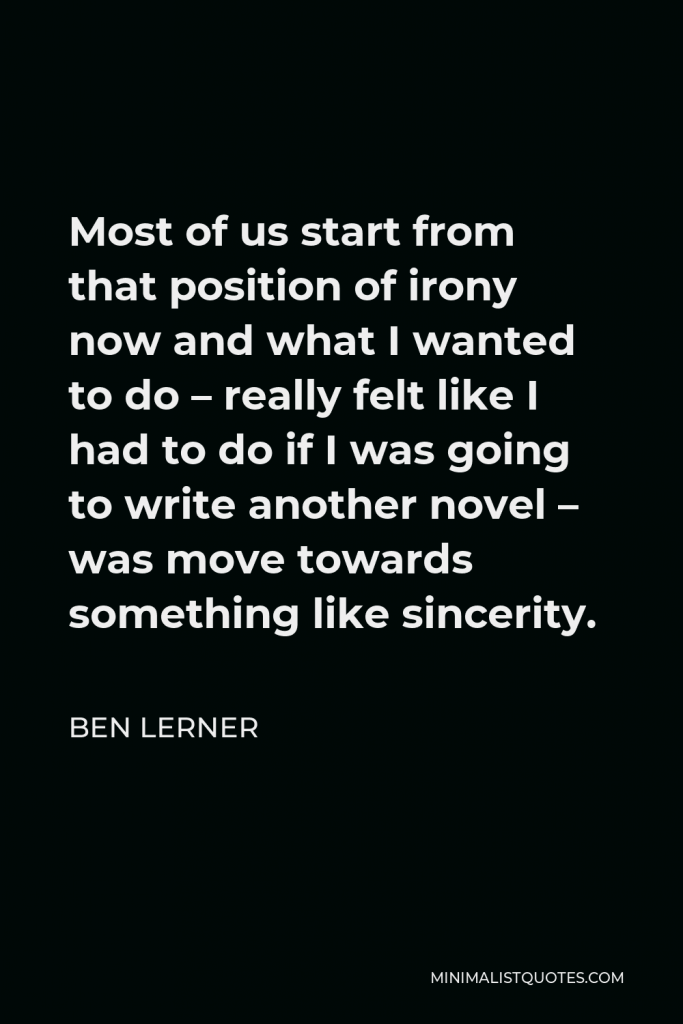

Most of us start from that position of irony now and what I wanted to do – really felt like I had to do if I was going to write another novel – was move towards something like sincerity.
BEN LERNER -





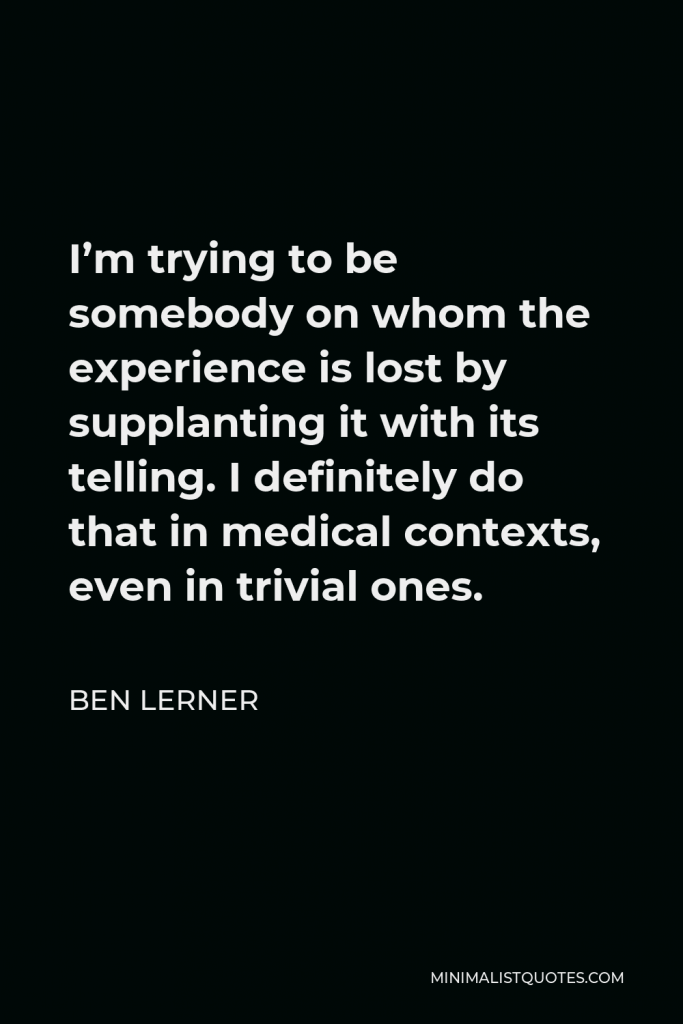

I’m trying to be somebody on whom the experience is lost by supplanting it with its telling. I definitely do that in medical contexts, even in trivial ones.
BEN LERNER -







Maggie Nelson cuts through our culture’s prefabricated structures of thought and feeling with an intelligence whose ferocity is ultimately in the service of love. No piety is safe, no orthodoxy, no easy irony. The scare quotes burn off like fog.
BEN LERNER -





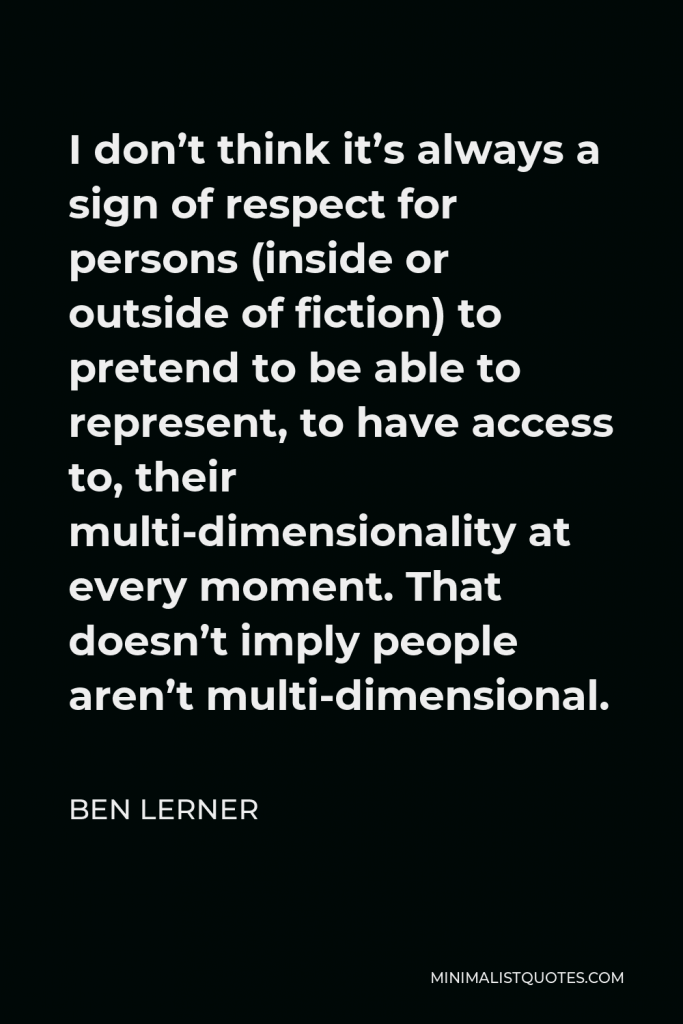

I don’t think it’s always a sign of respect for persons (inside or outside of fiction) to pretend to be able to represent, to have access to, their multi-dimensionality at every moment. That doesn’t imply people aren’t multi-dimensional.
BEN LERNER -





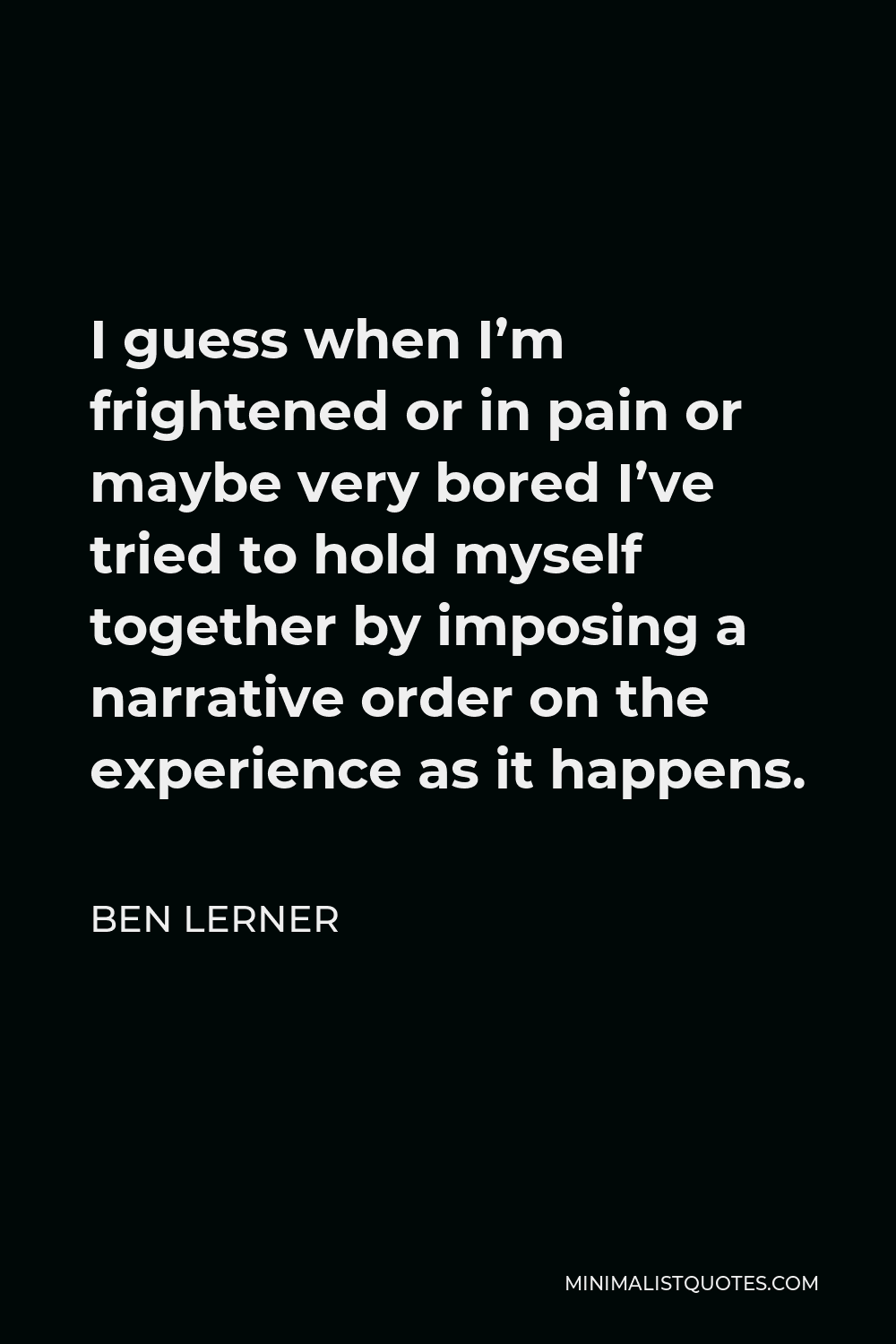
I guess when I’m frightened or in pain or maybe very bored I’ve tried to hold myself together by imposing a narrative order on the experience as it happens.
BEN LERNER

